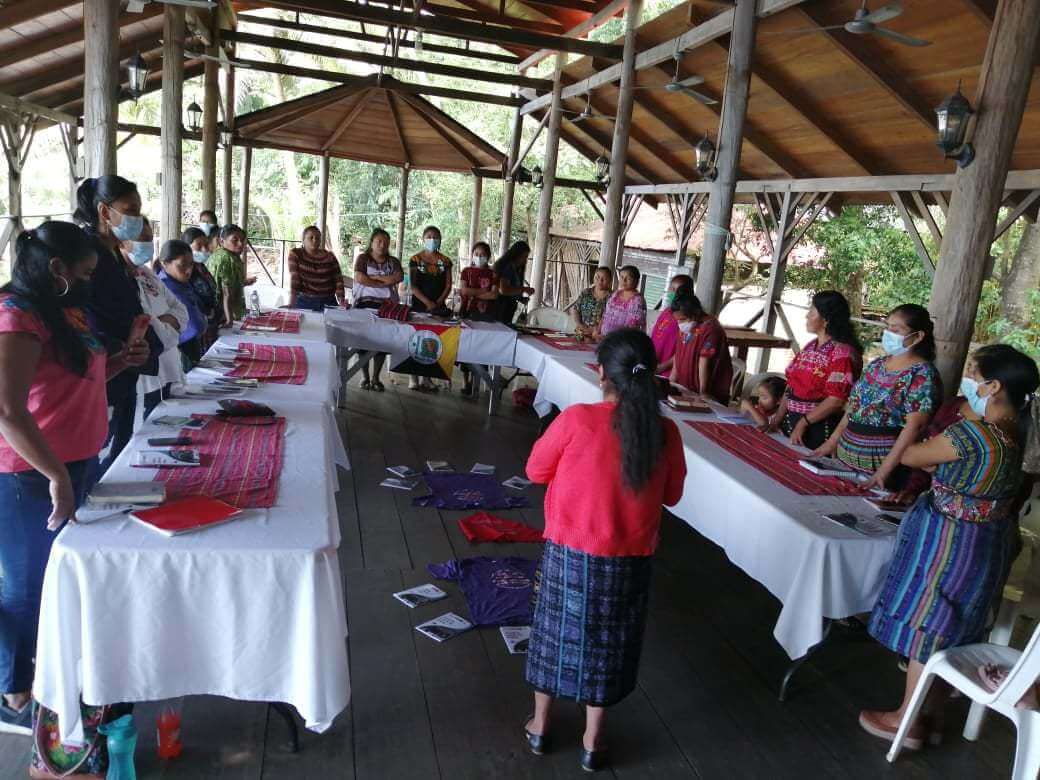Grassroots International partners with the Peasant Unity Committee (CUC), which is engaging in cross-cutting work that addresses these racist, patriarchal, and classist systems of oppression at the root. The organization built its strategic plan on the framework of food sovereignty, defined as “the right of peoples to healthy and culturally appropriate food produced through ecologically sound and sustainable methods, and their right to define their own food and agriculture system.”Food sovereignty addresses food and nutrition needs on one side and the lack of national and municipal public policies on the other. This project promotes agroecological family gardens for the women of Sololá, increasing food sovereignty and women’s organizing and leadership. CUC’s project Promoting Agroecological Family Gardens for the Women of Sololá, Guatemala, centers on vegetable production by and for women, mirroring CUC’s agroecological vision. Men are also included through intense political formation processes. CUC understands growing vegetables on Indigenous territory as political work and incorporates political visioning and training into each project cycle.
Indigenous Women’s Vegetable Gardening and Leadership Project in Guatemala

Project Information
Promoting agroecological family gardens for the women of Sololá, Guatemala.
**Photo credit: El Comité de Unidad Campesina
Describe the need affecting community
Guatemala is in the throes of institutional crisis, which has led to a decline in all social indicators and has been compounded by COVID-19. Poverty, insecurity, unaffordable food and violence are realities for the majority of Guatemala’s peasant and Indigenous population, but especially affect rural women and children. Land and water grabbing, climate crisis and corporate control of agriculture have entwined to create an unlivable situation for marginalized populations.The department of Sololá is one of the three most economically challenged departments in Guatemala, with 75% of its residents living in poverty, of which 29% live in extreme poverty. Chronic malnutrition is a reality for an average of 60% of Solalá’s children. Solalá is deeply Indigenous, with more than 96% of those living there self-identifying as Indigenous, compared with a 40% national average. These figures reflect sharp inequalities in Guatemala, in which its Indigenous population is its most marginalized and at risk. Intersecting systems of racial/ethnic, class and gender oppression especially impact Indigenous women living in poverty.
How will this Advance project help to address the need?
Describe the primary goal of the project
The general project objective is to strengthen the political organization and participation of women in the Sololá Department. The more specific goal is to contribute to food sovereignty for project participants through agroecological family gardens.
Describe the change you would like to see in the community as a result of this Advance project
Change in the community will come as a result of conducting trainings, both in the science and the politics of agroecology. CUC staff spend time in the field with women members in Sololá, ensuring that they are adequately prepared to manage their own successful gardens. As mentioned above, men will be included in a separate training module, ensuring a transformationof gender relations and power dynamics in the community. Another change in the community is that CUC is strengthening the organizational process of Indigenous peasant women and grassroots feminism, which will be achieved by horizontal growth into new communities. This will, in turn, expand CUC’s work and membership at the departmental and national levels.

